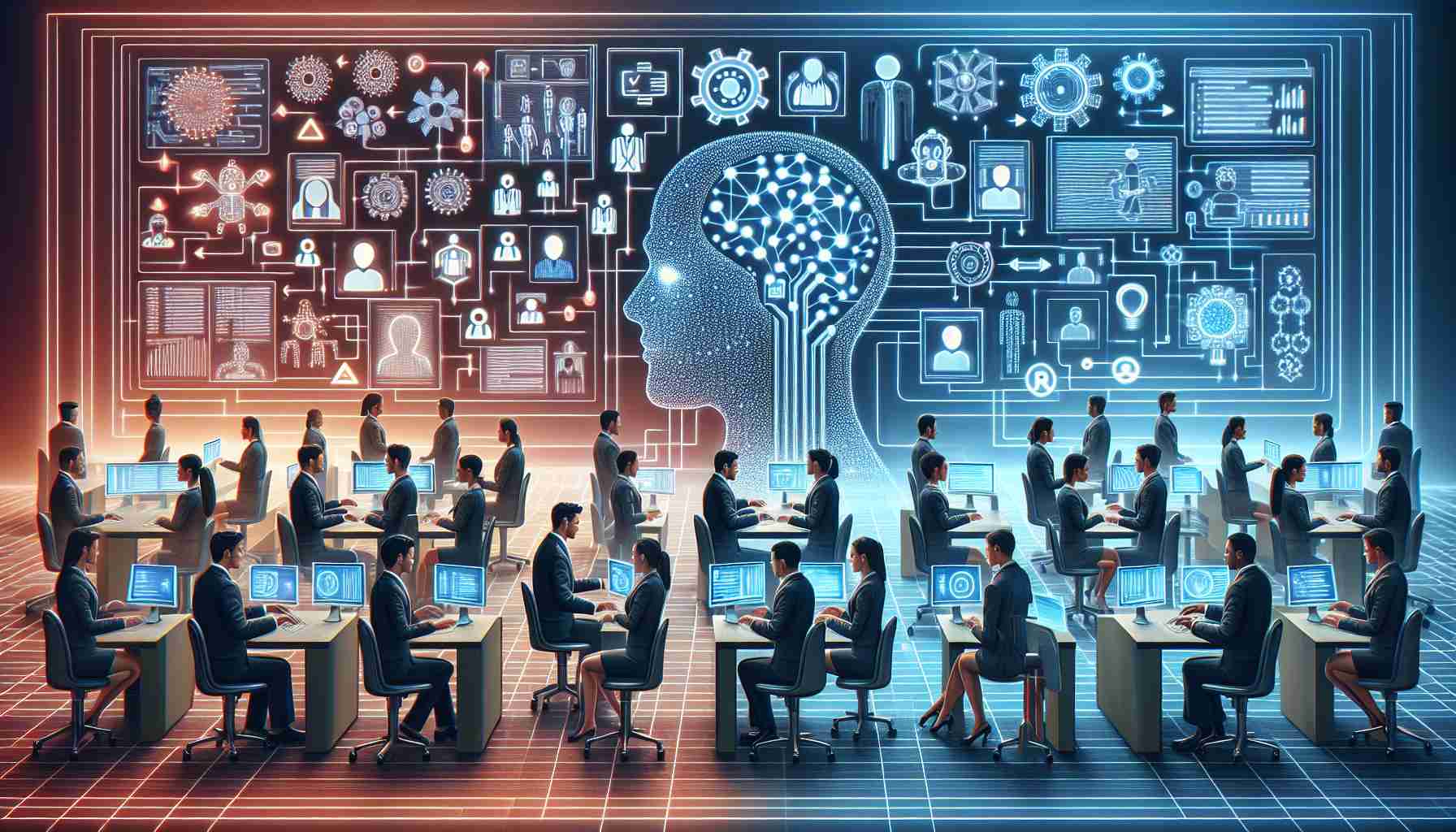As technology advances and artificial intelligence (AI) becomes increasingly integrated into various industries, it is no surprise that AI is now playing a significant role in the recruitment and selection of employees. However, the use of AI tools in the hiring process has raised concerns about bias and fairness.
In a recent survey conducted by Greenhouse Software, it was found that 48% of managers in Ireland, Britain, and Germany use CV screeners to search for specific keywords in applicants’ resumes. These screeners analyze resumes and determine which candidates should be called for an interview. Furthermore, 43% of managers use one-way interviews, where candidates record their answers to predefined questions, which are then analyzed by software to decide whether they should proceed to the face-to-face interview stage.
While these AI tools have been praised for their ability to efficiently process a large volume of job applications and reduce labor costs, there are concerns about their effectiveness and fairness. According to Hilke Schellmann, a renowned American journalist and author, some of these tools are based on questionable science. For example, measuring candidates’ facial expressions during one-way interviews as an indicator of their abilities has been discredited as pseudoscience. There is also the issue of bias in the algorithms that underpin these tools. Schellmann points out that factors such as race, gender, and disability can introduce bias into the recruitment process, making it unfair for certain candidates.
Dr. Na Fu, a professor of human resource management at Trinity College Dublin, recognizes the concern of bias in AI tools and highlights the importance of involving various stakeholders in the design stage of algorithms. With input from employers, managers, and employees, ethical and reliable AI tools can be developed.
FAQ:
What are CV screeners?
CV screeners are computer-based tools that analyze resumes and search for specific keywords to determine which candidates should be selected for further consideration in the hiring process.
What are one-way interviews?
One-way interviews are a type of interview where candidates record their answers to predefined questions. The recorded responses are then analyzed by software to decide whether the candidate should proceed to the next stage of the interview process.
What are the concerns with AI tools in recruitment?
There are concerns about the effectiveness and fairness of AI tools in recruitment. Some tools are based on questionable science, and the algorithms that underpin these tools can introduce bias into the hiring process, disadvantaging certain candidates.
How can bias in AI tools be reduced?
Reducing bias in AI tools requires involving various stakeholders, such as employers, managers, and employees, in the design stage of algorithms. This collaborative approach ensures that ethical and reliable AI tools are developed.
As AI continues to shape the recruitment landscape, experts suggest a cautious approach. Employers should carefully consider the purpose and design of the AI tool they intend to use. HR managers are encouraged to test the tools themselves to ensure they perform as expected. The key is to strike a balance between efficiency and fairness in the recruitment process, leveraging AI tools to enhance productivity while ensuring equal opportunities for all candidates.
Sources:
As technology advances and artificial intelligence (AI) becomes increasingly integrated into various industries, including recruitment and selection, there are industry forecasts and issues related to the use of AI tools in the hiring process.
According to a survey conducted by Greenhouse Software, 48% of managers in Ireland, Britain, and Germany use CV screeners to search for specific keywords in applicants’ resumes. These screeners analyze resumes and determine which candidates should be called for an interview. Additionally, 43% of managers use one-way interviews, where candidates record their answers to predefined questions, which are then analyzed by software to decide whether they should proceed to the face-to-face interview stage.
While AI tools in recruitment have been praised for their ability to efficiently process a large volume of job applications and reduce labor costs, there are concerns about their effectiveness and fairness. Some of these tools have been criticized for being based on questionable science. For example, measuring candidates’ facial expressions during one-way interviews as an indicator of their abilities has been discredited as pseudoscience. Another issue is the potential bias in the algorithms that underpin these tools. Factors such as race, gender, and disability can introduce bias into the recruitment process, making it unfair for certain candidates.
To address these concerns, Dr. Na Fu, a professor of human resource management at Trinity College Dublin, emphasizes the importance of involving various stakeholders in the design stage of AI algorithms. By including input from employers, managers, and employees, ethical and reliable AI tools can be developed that minimize bias and ensure fairness in the recruitment process.
As the use of AI in recruitment continues to grow, experts advise a cautious approach. Employers should carefully consider the purpose and design of the AI tool they intend to use and HR managers should test the tools themselves to ensure their performance meets expectations. The goal is to strike a balance between efficiency and fairness, leveraging AI tools to enhance productivity while ensuring equal opportunities for all candidates.
For more information, you can refer to the Greenhouse Software – AI Trends Report 2023.

